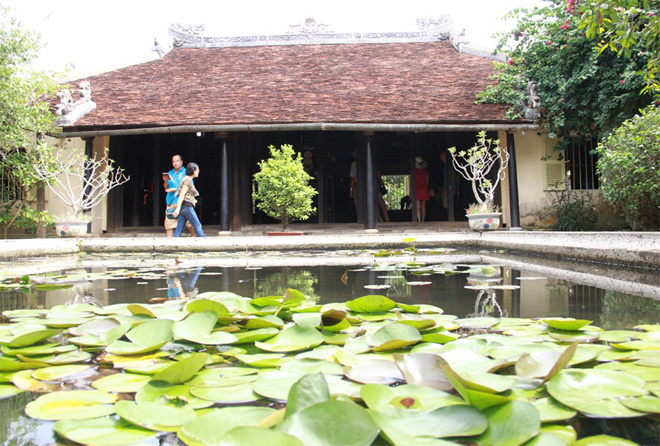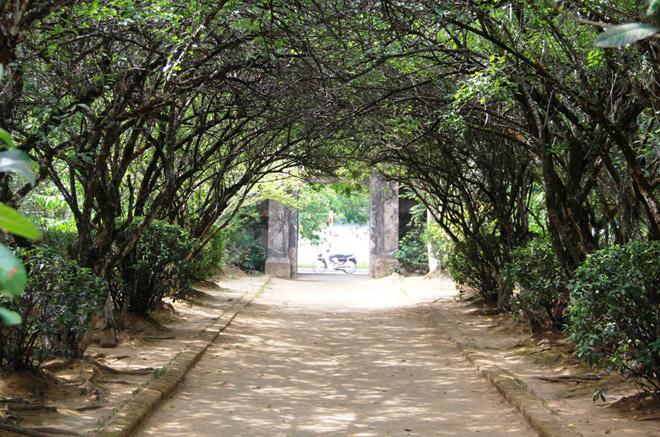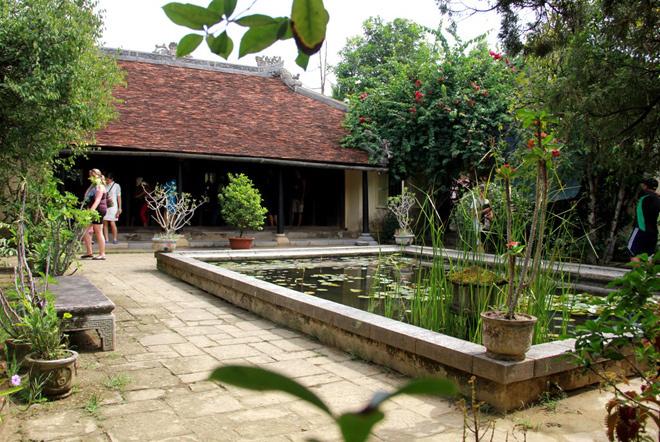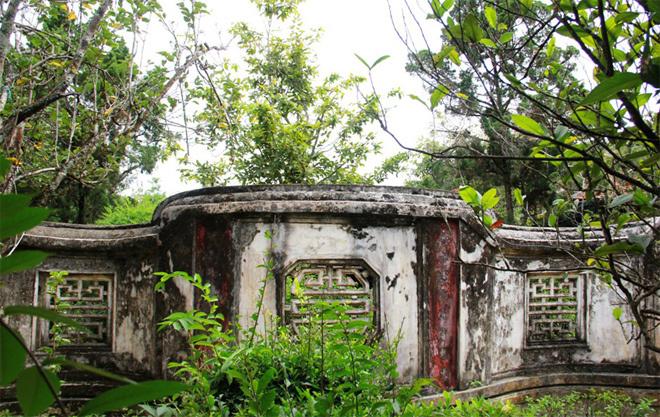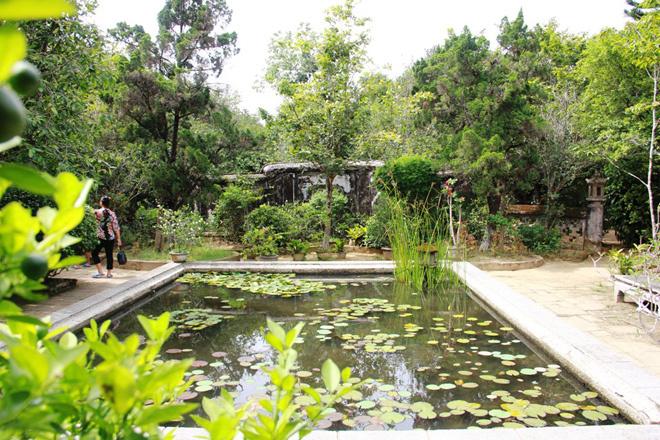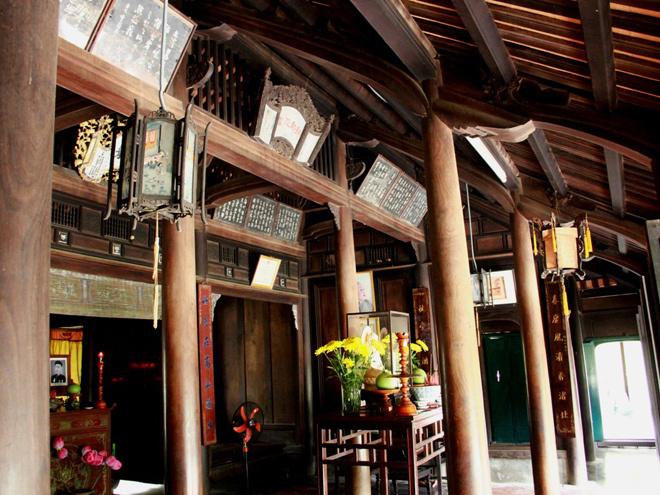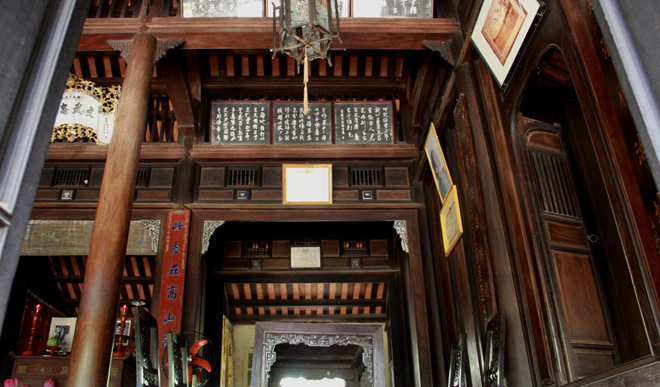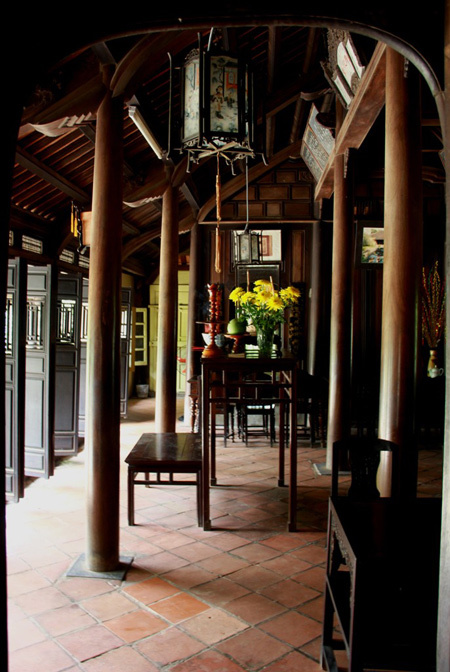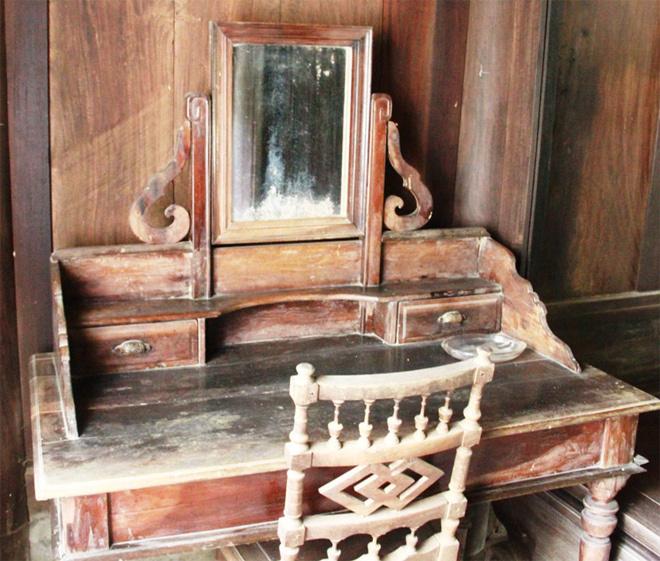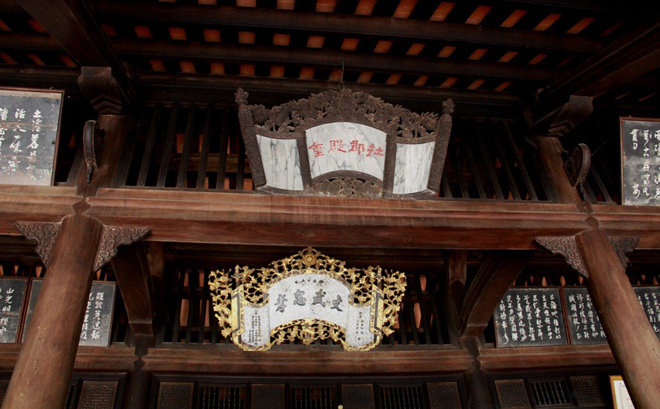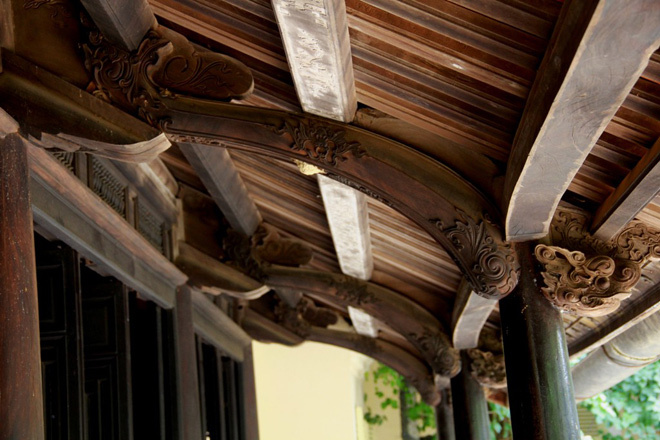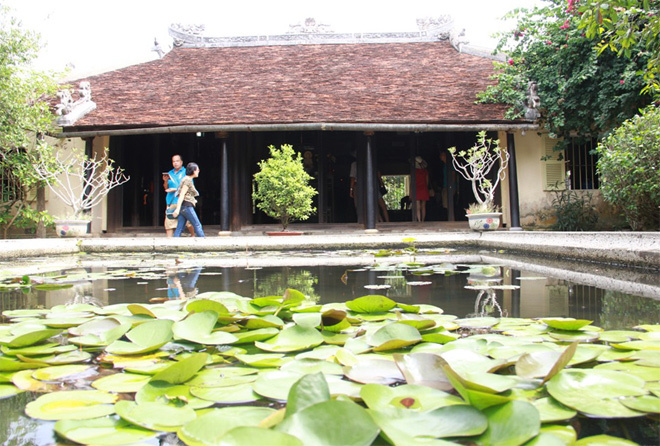
This is a nha ruong, a hand-made traditional wooden house with 48 columns for the cult of the ancestors and Buddha, a symbol of the ancient capital city of Hue.
Each nha ruong is built with many beams (ruong) and pillars (cot), and its name derives from this very characteristic.
But the most distinctive feature is that all beams and pillars are joined by mortises and tenons, not nails. Roofed with brick tiles, nha ruong has beams and pillars made of precious solid wood, such as lim (iron wood), gu (sindora) or thong xanh (teranthera pine). The whole house stands on big pillars placed on a round or square stone base. All nha ruong houses have a front garden.
Before 1895, the owner of this house was the daughter of King Duc Duc. The next owner was Mr. Pham Dang Khanh, grandson of the high-ranking mandarin Pham Dang Hung in the reign of Emperor Gia Long. In 1920, the house was handed over to Mrs. Kham Diep.
In 1936, it became the home of Mr. Nguyen Dinh Chi, the Governor of Ha Tinh Province. After Nguyen Dinh Chi died, his wife, Dao Thi Xuan Yen (former rector of the famous Dong Khanh High School in Hue City), managed the house. In 1997, she died and the house was inherited by her daughter-in-law Phan Thi Hoang Oanh and four grandchildren.
|
The main gate to the house and the hedge-row. The lotus pond or shallow pool in front of the house is a feng-shui element. The house is surrounded by a garden. There is a screen in front of the house which is believed to help prevent bad things from entering the house. The main room is the family temple where they worship Buddha and their ancestors. The space inside is the living room. The pillars.
An Hien house still preserves personal belongings of women in the olden days. Many parallel sentences and horizontal lacquered boards are hung in the house. Sophisticated patterns carved on pillars and beams. |
(Source:VNNet)

